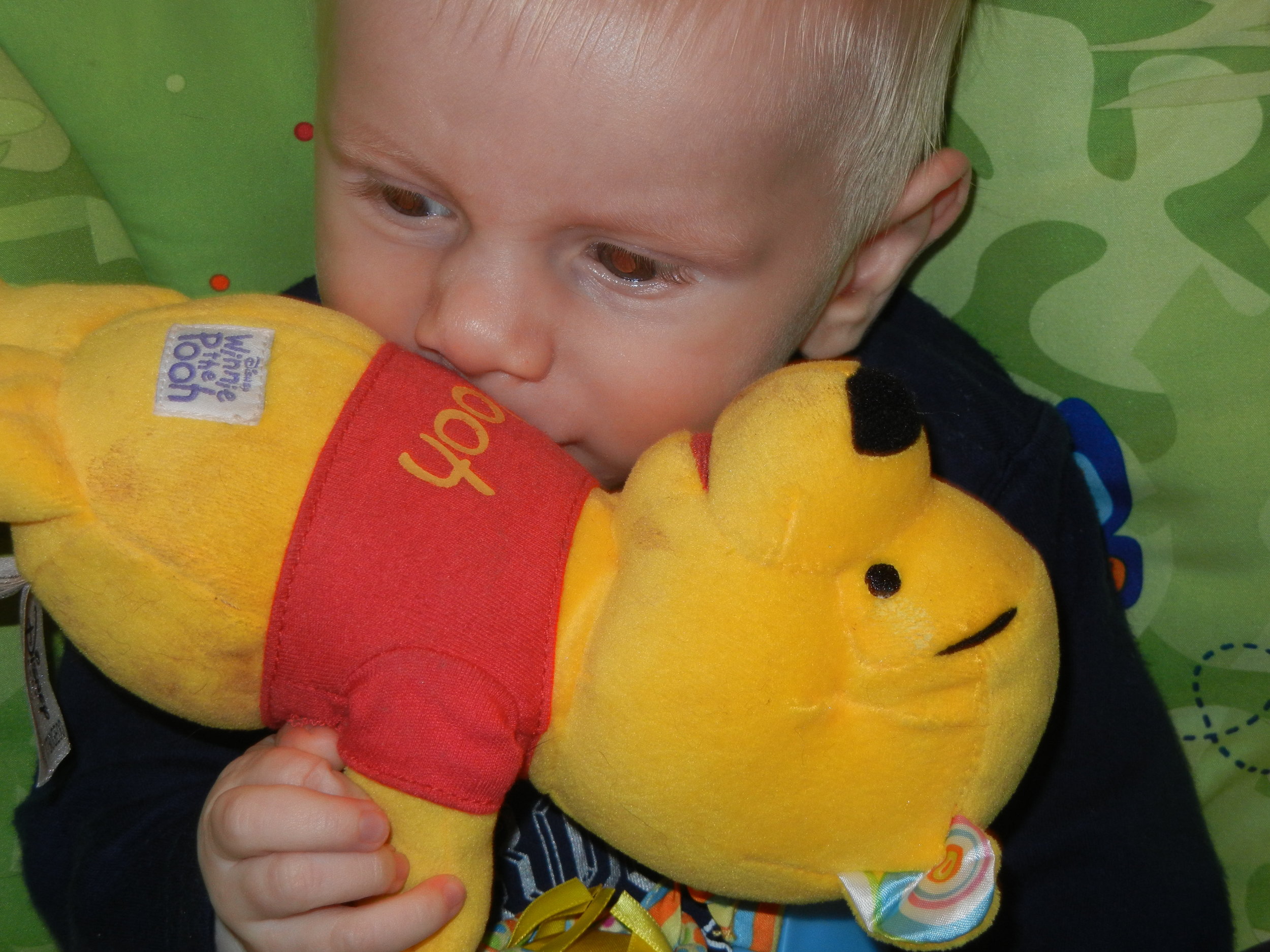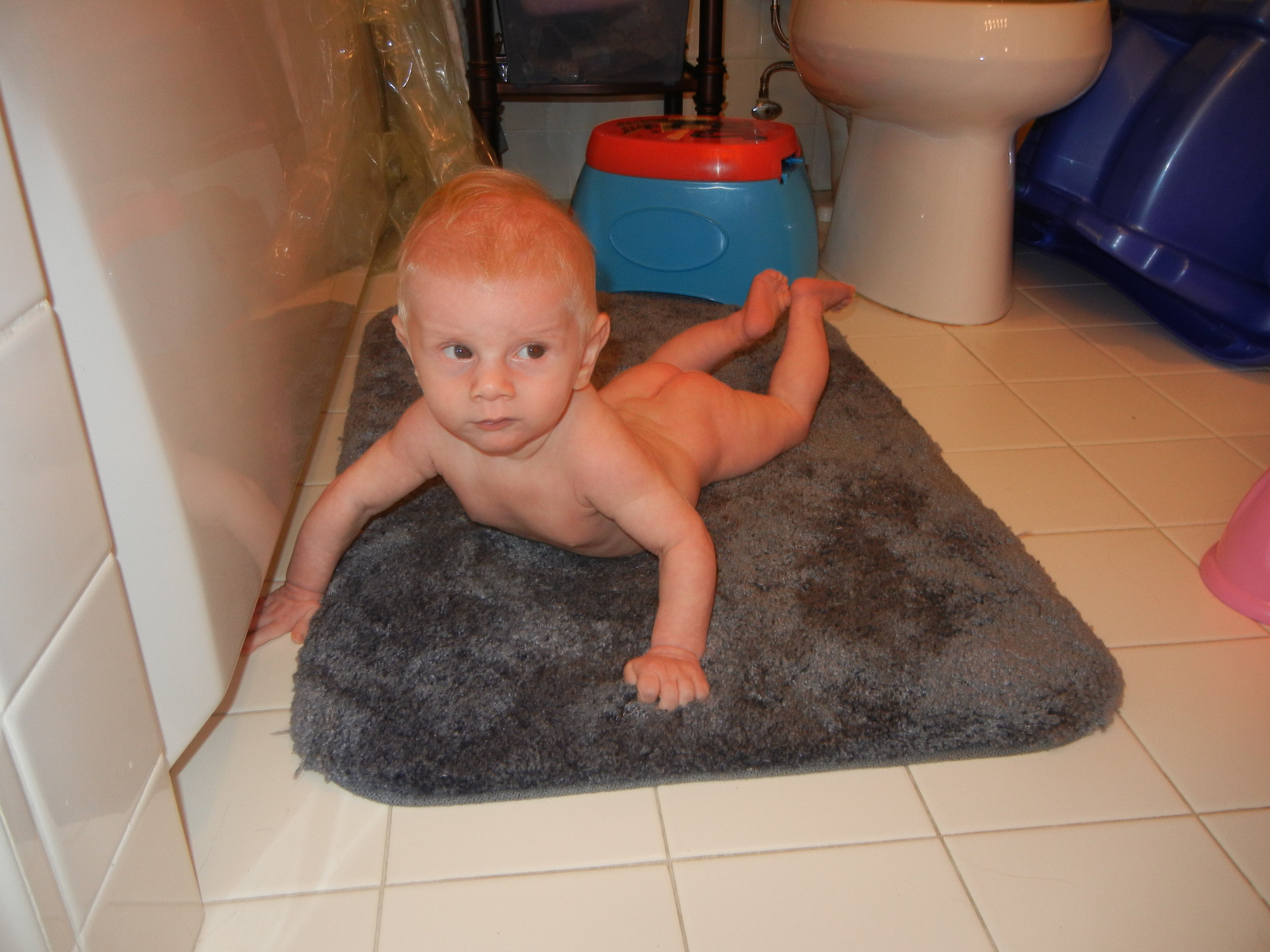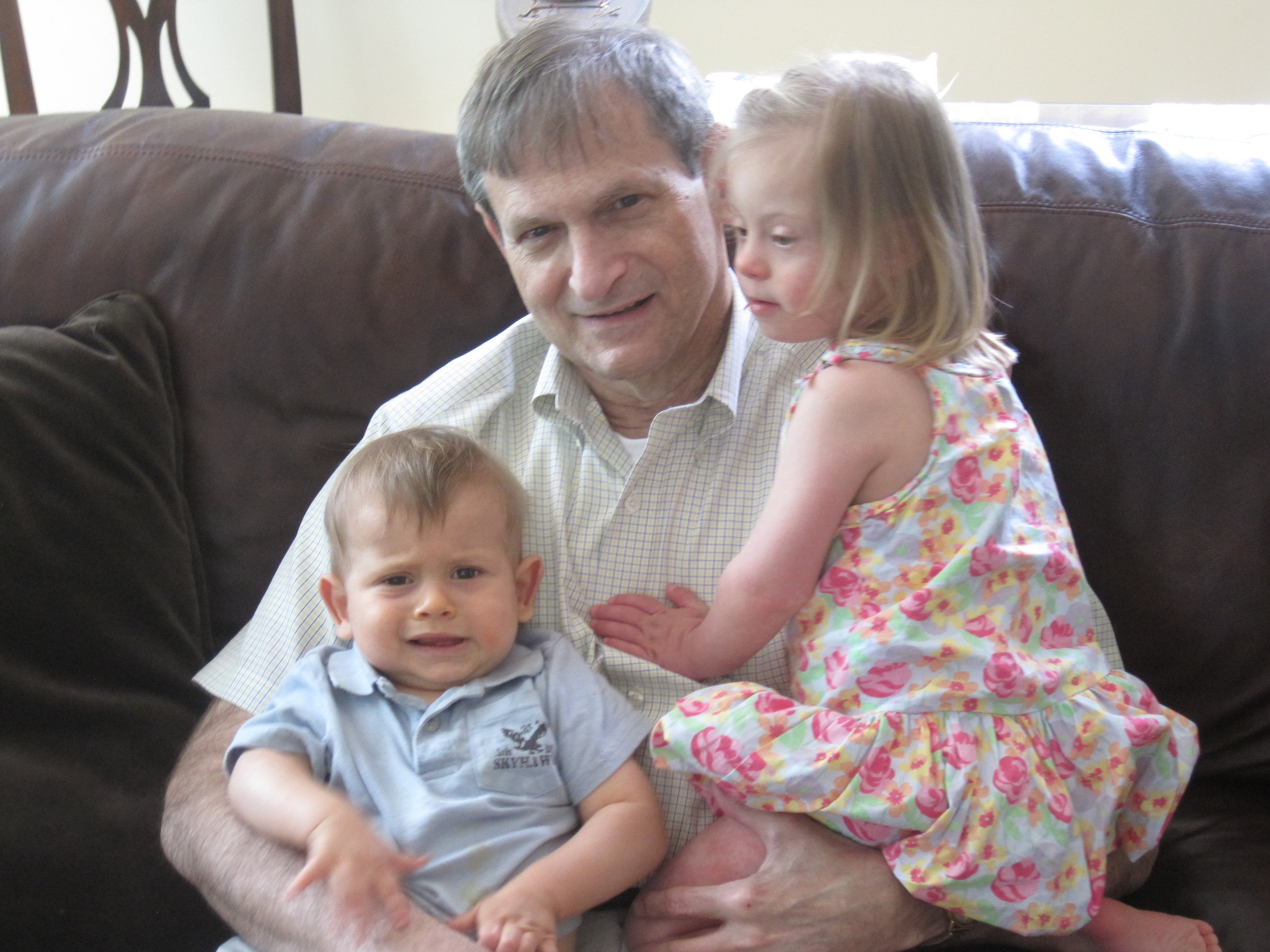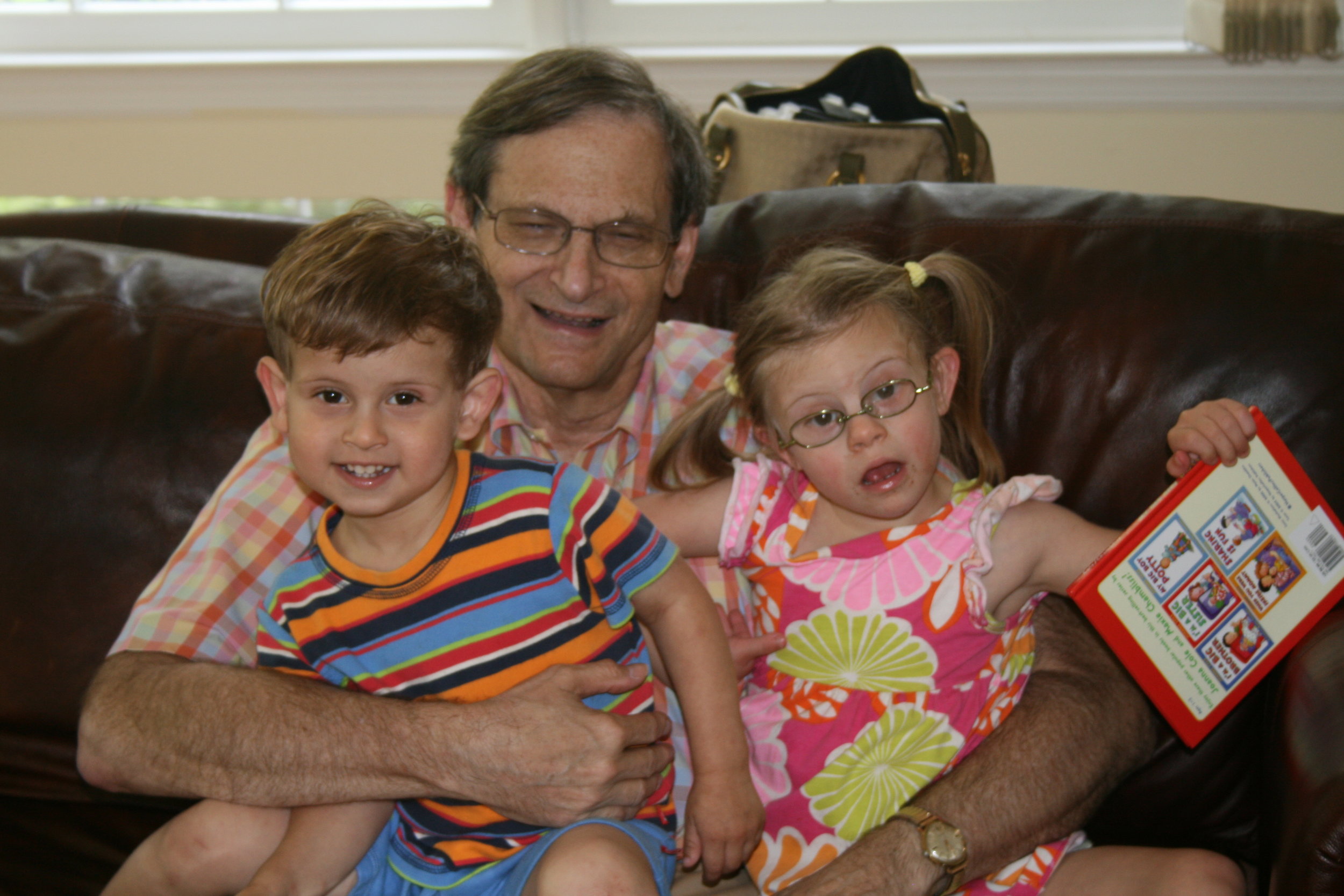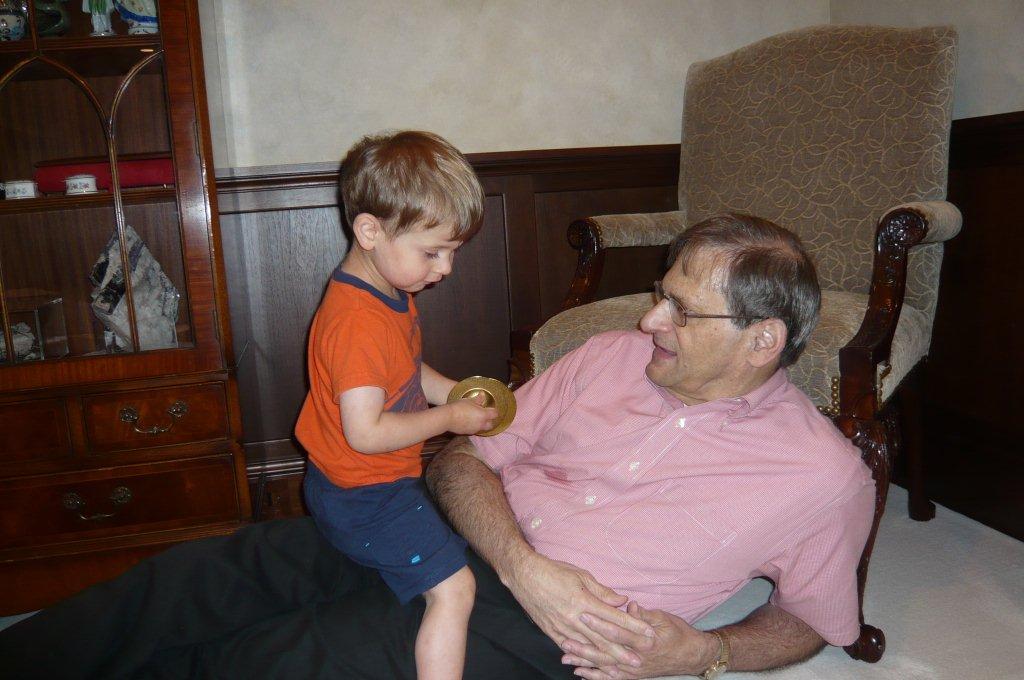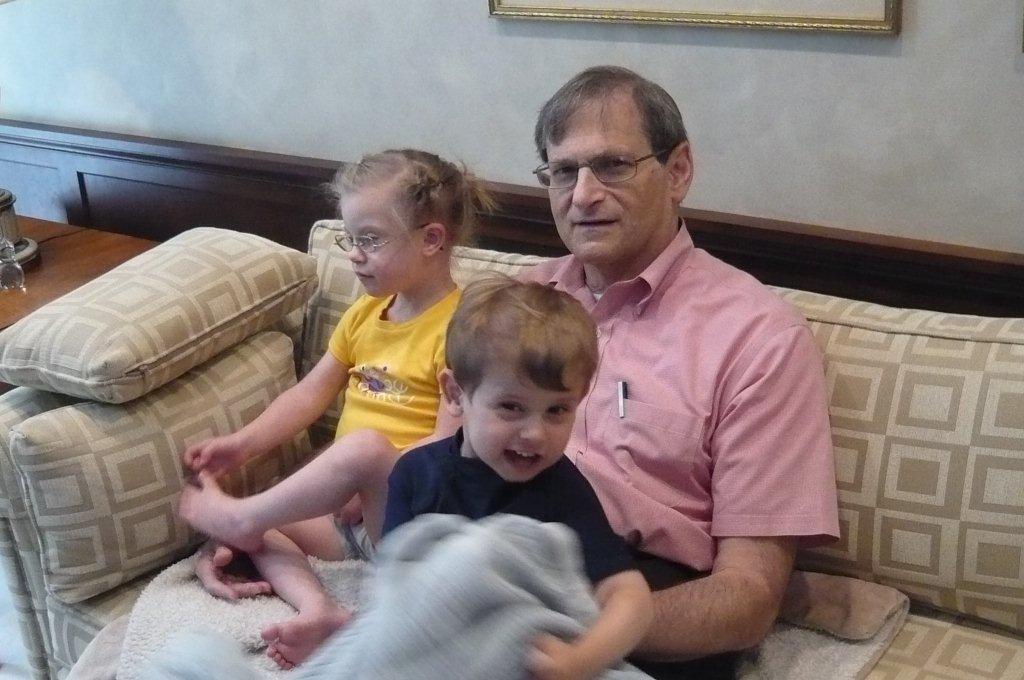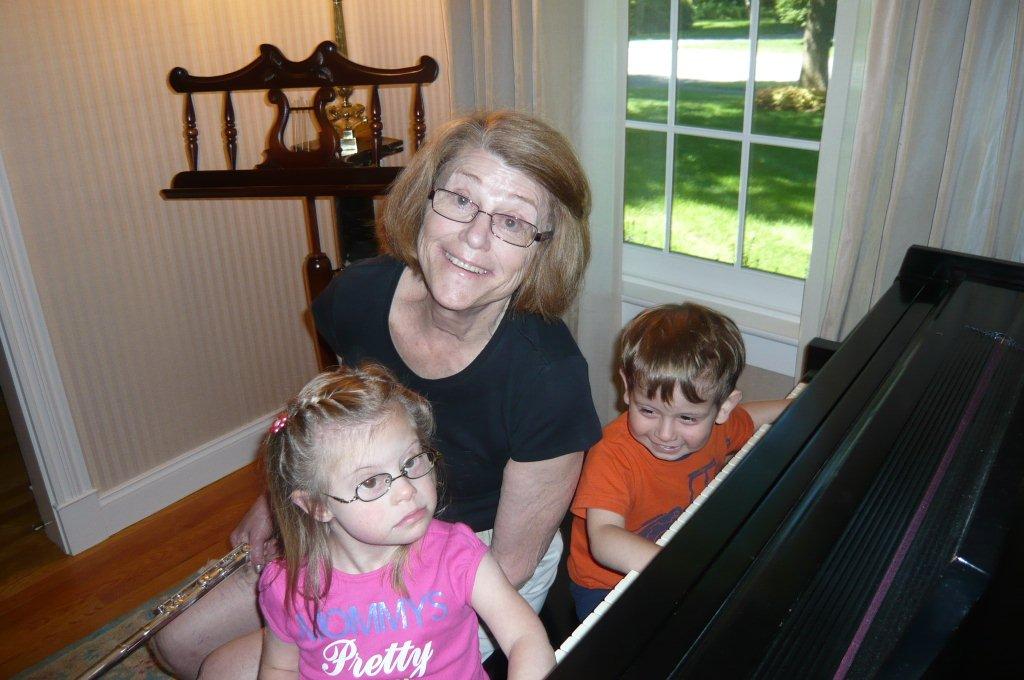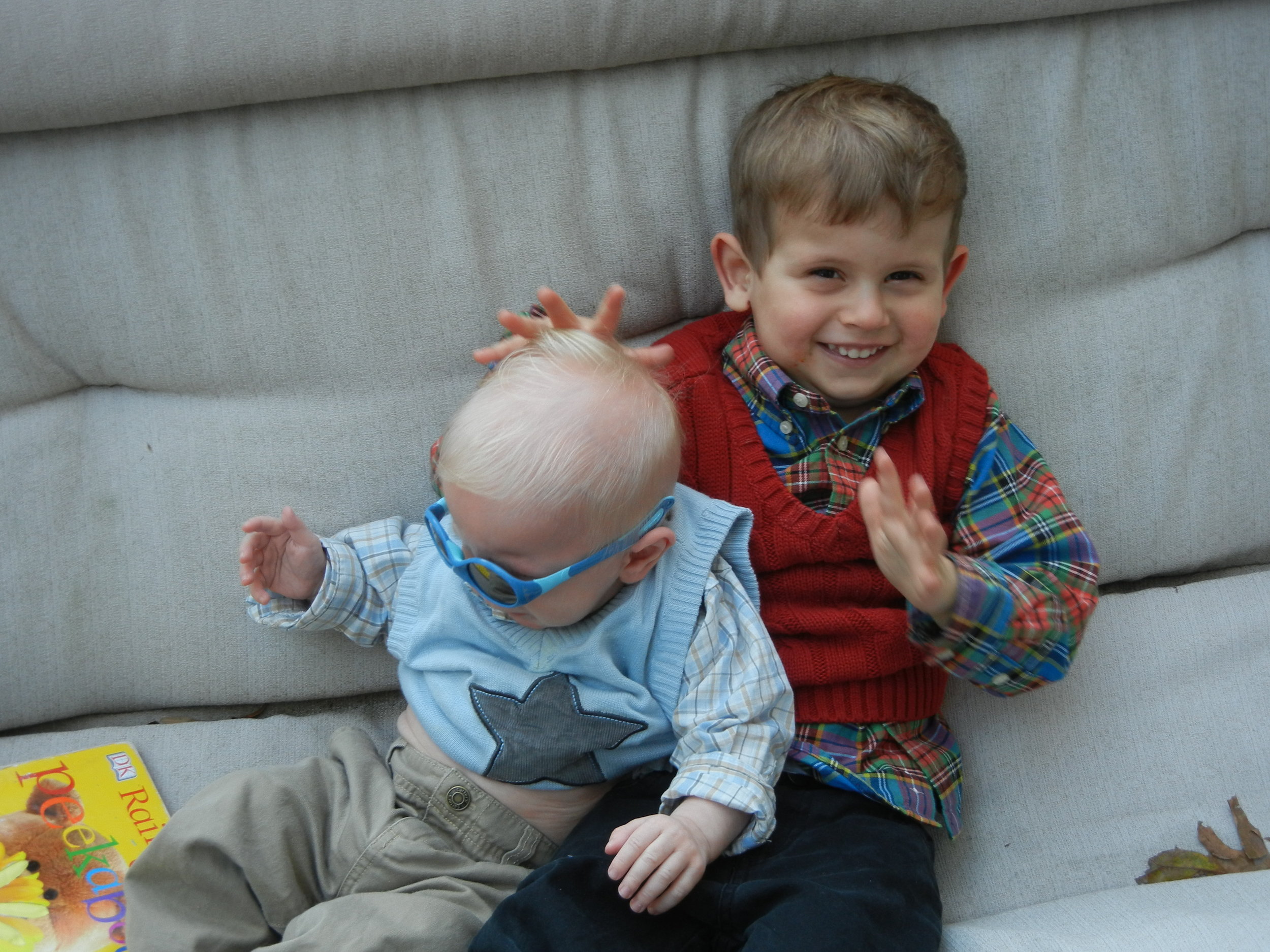The New Normal
Thank you, everyone, for the outpouring of support over the last couple weeks. It’s meant so much to me. The more I learn about albinism, the more positive I feel. I'm still waiting to take Geoffrey to see a specialist at Columbia, but in the meantime I took him to a local pediatric ophthalmologist who has seen many, many children with the exact same condition and who is very optimistic. Geoffrey is able to track objects a couple feet in front of him, which is an excellent sign. It’s still impossible to predict how severe Geoffrey’s vision loss will ultimately be, but I know now, after talking to so many other parents whose kids have albinism, that it won’t hold him back in his life. As one adult with albinism told me, “if your son really, really wants to achieve something, he’ll do it.” This man should know—he’s a professor of economics and counts playing golf and racing sports cars among his hobbies, despite being legally blind. And watching my four month old son, as he tries really, really hard to figure out how to get his knees up under his belly so he can start to crawl, I can tell he’s not going to let his poor eyesight deter him from getting anywhere he wants to go—or anything he wants to do.
Milestones this week include being able to sit up alone for a few seconds, and happily gumming down his first few bites of rice cereal.
I’m sure fifteen years from now he’ll be mortified that I posted this, but I couldn’t resist. A post bath baby is just so cute.
I’m not trying to sugarcoat things, by the way. I’m heartbroken that at such a young age, Geoffrey is entering the world with known vision loss. But Jamie and I also have the perspective now that comes from raising another child with a disability, and we know we can handle it. Slowly, we’re adjusting to our new normal, which includes
Never leaving the house without a hat—and sunscreen—even in the middle of winter.
Sporting sunglasses whenever we’re outside to protect Geoffrey’s little baby retinas.
Weekly therapy sessions with our occupational therapist through Birth to Three, Carol. Carol's been in our life since Jo Jo was three weeks old. She's an amazing OT and we are so lucky to have her. We're also trying to get Geoffrey vision services through BESB, the Board of Education and Services for the Blind.
But while I have only positive things to report about my youngest, I recently got news which is much more devastating. My father, who has battled the blood cancer multiple myeloma for the last five years, is in the hospital right now due to a viral infection that also seems to have robbed him of his vision.
It's unclear how permanent the vision loss is—and whether it will improve. Right now he can only see shadows. We are hoping that the potent anti-viral medications he is currently on will help reverse some of the damage, so at least he’ll be able to read large print, and work on a special computer. But unfortunately doctors just don’t know, and won’t know for a while.
When I got the news, I cried. It seems so unfair that after everything my father has had to endure—a stem cell treatment , multiple surgeries, grueling chemotherapy—he now has to contend with the loss of his eyesight. My father, a widely respected Harvard educated cardiovascular surgeon, is one of the most brilliant, compassionate, thoughtful people I know. It kills me to think that he may never again be able to read, or go for walks alone, or play ball outside with his two young grandsons. It kills me to think that my father, who growing up seemed to me to be as sturdy and strong as the rock of Gibraltar, told my mother a few nights ago that he was a burden to her, a blind man, a cripple. I know that is not true, and I know that is not my father talking, it’s all the drugs, and the pain, and the cancer
If anyone can weather this , it’s my father. Multiple myeloma is a ghastly, ghastly cancer, but thanks to the amazing care my dad has gotten from Paul Richardson, MD, of the Dana Farber/Harvard Cancer Center in Boston, and to my father’s indomitable spirit, he managed to stay in remission for the last three years. Now, the cancer is back (it’s compromised his immune system, which is why he got this horrible infection) and as soon as he’s well enough he’ll start chemotherapy over again.
When I was eight months pregnant with Johanna, my father went to Dana Farber to prep for his treatment. My parents timed it that way, figuring my father would have a few weeks to recuperate before my baby—their first grandchild—was born. But Johanna was born 3 ½ weeks early, and I went into labor the day my father was discharged from Dana Farber. My parents drove straight from Boston to Stamford Hospital and arrived in the delivery room a few moments after Johanna was born.
I remember that day so vividly. I remember my father walking into the room and being so shocked at how gaunt and thin he was. His hair seemed to have turned white overnight, and he walked with a pronounced limp, due to the effects the myeloma had already had on his bones. I remember the head of pediatrics at the hospital walking in and ordering my parents out of the room so he could talk to Jamie and I alone. I remember my parents walking in after the doctor had left, just minutes after Jamie and I had digested the news, and having to tell them, “they think Johanna has Down Syndrome.” And in the midst of the grief and anguish I felt at having to process this diagnosis, I felt ashamed. Ashamed that after years of waiting for this moment, and having battled cancer, my father’s first grandchild was born with such a disability. I worried that I’d let him down.
I couldn’t read his expression as I told my parents the news. He was impassive. But then the pediatrician walked back in, to give us an update on Johanna, who was in the NICU, and my father interrupted him to ask “Can we see her?”
“Absolutely,” the pediatrician said, and my father said, smiling, “I would like nothing more.” I searched his face for something, some sign of disappointment, but there was none there. I only saw pride.
A few minutes later, we were in the NICU, staring at my daughter, who was lying in an incubator screaming her head off, red and swollen and covered in wires. I was terrified to touch her, but my father reached in without hesitation to take her out. He held her often in the next 24 hours, while he was there, and I will never forget his look of reverence as he gazed at her. It did not matter at all to my father that Johanna had an extra chromosome. She was perfect just the way she was, from the Brushfeld spots in her eyes to the sandal gap between her first and second toe. I’ll never forget what he said to me as he cradled her, “She will always be the most special grandchild, because she was my first.”
He has always loved her unconditionally, from the moment he saw her, and for that I will be forever grateful.
Thank you daddy.
I wanted to drive up to Amherst this week to see him. I feel so helpless here in Connecticut. I want to hold his hand and squeeze his fingers and tell him I love him and play him videos of all three grandchildren because even if he can’t see them at least he can hear their voices. But my father doesn’t want me there. He’s so immunocomprised, for one, and Jo Jo and Teddy harbor so many viruses between them that combined they are the equivalent of a toddler Typhoid Mary. But I also suspect he doesn’t want me to see him now, so fragile and exhausted in a hospital bed. He wants me to come visit him in a couple weeks, when he is out of the hospital and feeling stronger.
I can appreciate that. But in the meantime, I have a few things to say to him that cannot wait. He may not be able to see these words on his computer screen, but I know my mother will read them out loud to him.
Daddy, please don’t give up. You have always believed in me over the last 38 years, and now it’s my turn to believe in you. You can do this. You can beat back the myeloma, and you can get your vision back, and if you can’t get your full eye sight back you will make sure to find ways to keep living your life. You will learn Braille if you have to, or go for those long nature walks you love with the help of a guide dog. You will learn to navigate through the world with the help of your other senses.
Daddy, please keep believing. You have four small grandchildren (and another one on the way) who adore you. Every day, Teddy asks about you and tells me he wants to play with his Pop Pop. You have two small grandsons who can’t wait to grow up with you. They don’t care whether you can see well enough to throw a football with them or read to them; they are comforted just by sitting on your lap and hearing the sound of your voice.
You have so much to teach them, Daddy. Johanna, Teddy and Geoffrey need their grandpa, not just so you can take them to Red Sox games, but so you can show them your gift of compassion for others, your desire to improve people’s lives and make a difference.
And Daddy, I will count myself blessed if my two small sons end up half the man you are.
When I spoke to my father again tonight, he sounded exhausted, but upbeat. He told me that if he even gets five percent of his vision back, he will be grateful. I know once he's gone through chemotherapy and gotten his strength back, he won't sit around feeling sorry for himself. He'll take some time to regroup and adjust to his new normal, whatever it is, and then he'll be busy trying to figure out ways to keep doing his research projects and volunteer work at the local synagogue.
He's a great, great man, my father, and I feel privileged to have inherited half his DNA.
And mommy, thank you for taking such wonderful care of my father. I love you more than you will ever know.
So welcome to our new normal. It's not in a million years what we ever expected, but we will roll with it and make the best of it and ultimately succeed with it because that's who we are.
We're those crazy Sklars.
